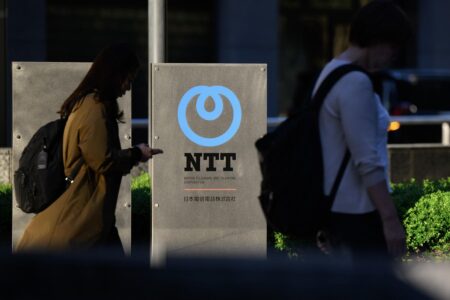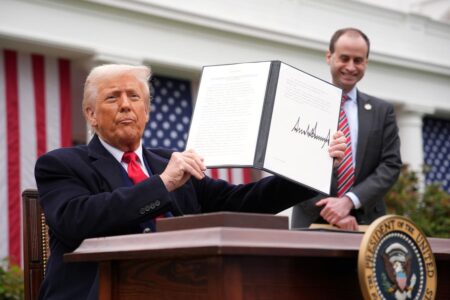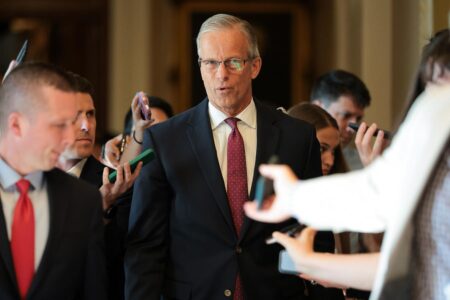My inbox hasn’t been this full in years—at least as far back as the pandemic. What’s confusing taxpayers these days? The One Big Beautiful Bill Act (OBBBA).
OBBBA (I pronounce it “ah-ba”, not to be confused with ABBA, the Swedish rock group) was signed into law by President Donald Trump on Thursday, July 4, 2025. The bill makes permanent several of the expiring tax cuts contained in Trump’s signature 2017 tax legislation—the Tax Cuts and Jobs Act (TCJA). It also introduces a few new provisions, including some temporary tax breaks for individuals.
Following the House vote, I wrote a summary article (you can find it here). Since that time, I’ve been fielding some of your questions via email and social media, including a fast-paced A/M/A (ask me anything) on the social media site Reddit (you can find Forbes and me both there from time to time).
Why all the questions? New deductions for seniors, tipped workers, and overtime, plus a tax hit on gamblers, are just some of the provisions confounding taxpayers.
Line 6 of Form 1040 is where taxpayers report their taxable Social Security Benefits. Taxpayers report their gross taxable benefits on Line 6a and the taxable portion of their benefits on Line 6b. Most tax software calculates the taxable portion of benefits automatically. If there were no longer a tax on Social Security, the IRS could simply revise Form 1040 to remove Line 6, but that isn’t going to happen because that isn’t how the new law works.
Rather than removing Line 6 from Form 1040, the new law adds a new $6,000 deduction for seniors (age 65 and over). The deduction is up to $12,000 for jointly filed returns (both spouses must be qualifying seniors aged 65 or older). In other words, if a taxpayer starts taking Social Security at 62, they do not get this deduction—conversely, if a taxpayer has delayed Social Security and is not yet receiving benefits but is over age 65, they can still claim the deduction.
The provisions governing tips and overtime are similarly rule-dependent—neither is a blanket exemption.
Tip income would be temporarily deductible—only for tax years 2025 through 2028—for individuals in traditionally and customarily tipped industries, regardless of whether they itemize. The deduction is limited to $25,000 of reported tips. It’s important to note that this is a federal income tax deduction, not an exclusion. That means that tips would still be reportable—and taxable at the state and local level. Highly compensated employees won’t benefit since phase-out begins for individuals who make more than $150,000 or $300,000 in the case of a joint return.
Workers who receive overtime will be eligible for a deduction for qualified overtime pay of $12,500 ($25,000 for married taxpayers filing jointly). As with tips, this is a deduction, not an exclusion. The deduction would apply to taxpayers regardless of whether they itemize and would also be temporary—only for tax years 2025 through 2028. For purposes of the rule, overtime compensation is defined as the amount paid in excess of the employee’s regular rate—only the overtime compensation is part of the break. It phases out for taxpayers with income over $150,000 ($300,000 for married taxpayers filing jointly)—that means the maximum deduction would disappear at $275,000 for single filers.
The deductions are similar but have a particular quirk when it comes to marriage: they are treated differently. Specifically, there appears to be a marriage penalty for well-tipped servers who tie the knot with one another, and a marriage bonus for well-tipped servers who marry industrious blue-collar workers.
And that tax hit for gamblers? An unpopular provision that wasn’t in the House version, but ended up in the final law would limit gamblers to offsetting only 90% of their winnings with their losses resulting in many gamblers, whether they win, lose, or break even, owing taxes on their gambling activities. The gambling industry isn’t happy—and members of Congress are already walking the provision back. Rep. Troy Nehls (R-Texas), who voted yes on OBBBA, is cosponsoring legislation to reverse the provision.
Nehls isn’t the only member of Congress trying to turn back the OBBBA clock. Despite language in the new law that mirrored a direction from the House to eliminate the IRS Direct File program (and spend $15 billion to try and find a replacement), Rep. Emilia Sykes (D-Ohio) has introduced the “Get Your Money Back Act” to make the IRS’ Direct File tax program available to all 50 states.
To help you sort out some of the confusing bits, we’ve put together some of your most popular questions—and answers—in one place in an easy-to-read format. I hope it helps.
We’ll continue to provide coverage on OBBBA, including IRS and Treasury guidance, as we hit the run-up to tax season. It will be here before you know it.
Speaking of here before you know it, the upcoming week marks the beginning of a whirlwind of tax conferences. I’ll be speaking at three this month: Tax Retreat, Bridging the Gap, and Taxposium. If you’re in attendance, come find me and introduce yourself–I’d love to say hello!
Enjoy your weekend,
Kelly Phillips Erb (Senior Writer, Tax)
Questions
This week, a reader asked:
I think I just found a mistake on last year’s tax return. How long do I have to file a new one?
Normally, you have three years after the date you filed your original return or two years after the date you paid the tax, whichever is later, to file an amended tax return. (If you filed early, the time starts to run beginning on the April tax deadline.) Special rules apply to refund claims related to net operating losses, foreign tax credits, bad debts, and other issues.
That said, you may not need to file an amended return—it depends on the error. The IRS may correct certain errors on a return and may accept returns that are missing certain required forms or schedules. However, if there’s a more significant error, like a problem with your filing status, income, deductions, credits, or tax liability, you likely need to file.
—
Do you have a tax question that you think we should cover in the next newsletter? We’d love to help if we can. Check out our guidelines and submit a question here.
Statistics, Charts, and Graphs
There are a lot of expectations being placed on the U.N.’s Fourth International Conference on Financing for Development. The conference, which occurs roughly once a decade, is an opportunity for U.N.member countries to gather and discuss the most pressing development issues they face and troubleshoot solutions.
At each conference, there’s an outcome document that outlines the priorities, goals, and positions of the conference’s attendees. This year’s outcome document, the Sevilla Commitment, is supported by most of the U.N.’s member states, with the exception of the United States.
This year’s outcome document devotes nearly 2,000 words to tax-related issues. According to the document, developing countries experienced a promising trend in their tax revenues between 2000 and 2010. But over the past few years, those revenues have plateaued or shrunk because of events like the global financial crisis, COVID-19 pandemic, and slowing global economic growth.
In one section, the document encourages countries to consider increasing tobacco and alcohol taxes to boost national revenue and promote healthy behavior. Specifically, a new initiative is being launched under the Sevilla Platform for Action, entitled the “3 by 35 Initiative.” Under this plan, the World Health Organization will encourage countries to implement tax increases on tobacco, alcohol, or sugary drink products–often referred to as sin taxes–aiming to raise their prices by 50% by 2035.
One potential problem? Younger people are drinking and smoking less. Countries like the UK and Japan are witnessing declines in traditionally destructive behaviors, as illustrated in the chart. Those drops, while beneficial for the population, aren’t great for sin tax revenues that depend on those behaviors. It’s a reminder of the problem with sin taxes—if the taxes successfully discourage the behaviors, the related revenues drop.
A Deeper Dive
Former Real Madrid coach Carlo Ancelotti has been sentenced to one year in prison and will pay a hefty fine after being found guilty of tax fraud. He had been accused of failing to pay over a million euros (US$1.1 million) in Spanish taxes related to image rights. Image rights—the right to use your name, image, voice, and other characteristics personal to you—can be valuable.
Ancelotti was acquitted on similar charges related to the 2015 tax year. That was the year Ancelotti moved to London mid-year, following his first stint as coach with Real Madrid, which began in 2013. The break likely meant that Ancelotti didn’t meet Spain’s residency requirement for the year.
Prosecutors had originally sought nearly five years in prison for the two counts of tax evasion. Ancelotti received a one-year sentence, which means he will likely not spend any time in prison. In Spain, individuals who receive a light prison sentence typically do not serve time unless the offense involves a violent crime or if the defendant is a habitual offender. Typically, a light sentence is one of two years or less, meaning he will only serve probation.
In addition to the prison sentence, Ancelotti will be required to pay a fine of €386,361 (approximately US$452,973).
The spotlight on Ancelotti—a manager—is a bit of a change of pace. In recent years, the Spanish government has chased several soccer stars for tax evasion, including Lionel Messi and Cristiano Ronaldo; most have settled their cases or received light sentences.
Tax Filings And Deadlines
📅 September 30, 2025. Due date for individuals and businesses impacted by recent terrorist attacks in Israel.
📅 October 15, 2025. Due date for individuals and businesses affected by wildfires and straight-line winds in southern California that began on January 7, 2025.
📅 November 3, 2025. Due date for individuals and businesses affected by storms in Arkansas and Tennessee that began on April 2, 2025.
Tax Conferences And Events
📅 August 5-September 16 (various dates), 2025. IRS Nationwide Tax Forum in New Orleans, Orlando, Baltimore and San Diego. Registration required (discounts available for some partner groups).
📅 July 18-19, 2025. Tax Retreat “Anti Conference.” Denver, Colorado. Registration required.
📅 July 21-23, 2025. National Association of Tax Professionals Taxposium 2025. Caesars Palace, Las Vegas, Nevada. Registration required.
📅 July 22-24, 2025. Bridging the Gap Conference. Denver Marriott Tech Center, 4900 S. Syracuse Street, Denver, Colorado. Registration required.
📅 July 28-30, 2025. Tax Summit 2025. Grand America Hotel, Salt Lake City. Registration required.
📅 September 17-18, 2025. National Association of Tax Professionals Las Vegas Tax Forum. Paris Hotel, Las Vegas, Nevada. Registration required.
Trivia
In 2005, the tax laws in a certain country were changed to benefit wealthy foreigners. The law became known as Beckham’s Law, or Beckham’s Tax, because footballer David Beckham was one of the first to take advantage of it—some speculate that it was actually written for him. Name the country.
(A) France
(B) Italy
(C) Spain
(D) United States
Find the answer at the bottom of this newsletter.
Positions And Guidance
The IRS has published Internal Revenue Bulletins 2025-28 and 2025-29.
The American Institute of CPAs (AICPA) submitted a letter to the Treasury and IRS requesting additional guidance related to catch-up contributions designated as Roth contributions within Section 603 of the SECURE 2.0 Act of 2022, which was signed into law as part of the Consolidated Appropriations Act of 2023. In January, 2025, Treasury and the IRS issued REG-101268-24, which included guidance reflecting the statutory changes made by section 603 of SECURE 2.0. Those changes include the requirement that catch-up contributions made by certain catch-up eligible participants must be designated as Roth contributions, otherwise referred to as the Roth mandate.
The American Bar Association (ABA) Section of Taxation submitted comments to the U.S. Court of Federal Claims in response to the Notice of Proposed Amendment to Rules by suggesting that a rule be abandoned. Specifically, the Section addressed the proposed amendments to Rule 9(m), which continue an existing practice requiring taxpayer-plaintiffs in a tax refund suit to attach to the complaint a copy of their administrative claim for refund, which frequently includes a copy of an original or amended tax return. Although limited redactions are permitted, sensitive financial information required to be included in the claim for refund but not eligible for redaction becomes public by default under the existing procedure.
Noteworthy
Baker McKenzie announced that Donna McComber has rejoined the Firm as a Principal Economist in Washington, DC. McComber is a transfer pricing practitioner with over 25 years of international tax experience in the US Government and private practice, including negotiating Advance Pricing Agreements (APAs) and Mutual Agreement Procedure (MAP) cases with numerous US treaty partners.
Foley & Lardner LLP announced that David Morris has joined the firm’s Salt Lake City office as a partner in its Taxation Practice Group. Morris comes to Foley from Kirkland & Ellis LLP, where he counseled private equity sponsors and corporate clients on a broad range of complex transactional tax matters.
A new law that will more than double California’s film tax credit to $750 million annually and offers incentives to keep production, below-the-line jobs, and investments rooted in California, took effect immediately upon being signed by Gov. Gavin Newsom. The Governor is awarding 16 new television shows (nine renewals, two pilots, four new shows, and one relocating show) through the program, which, taken together, are collectively anticipated to bring in $1.1 billion in total spending to the Golden State. In addition to hiring 6,664 cast and crew members, the 16 projects are expected to hire 59,000 background performers (measured in days worked), across 1,308 total California filming days.
A bill that would have created a pilot program to tax drivers by the mile failed in Illinois. The pilot was considered as a potential replacement for the state’s motor fuel tax. Illinois has the second-highest gas tax in the U.S., after California.
—
If you have tax and accounting career or industry news, submit it for consideration here or email me directly.
In Case You Missed It
Here’s what readers clicked through most often in the newsletter last week:
You can find the entire newsletter here.
Trivia Answer
The answer is (C) Spain.
The Beckham Law in Spain allows some foreign workers who move to the country to pay a reduced rate of personal income tax (IRPF) for a limited period. It was called “Beckham’s Law” because of the speculation that it was passed in favor of footballer David Beckham after he signed for Real Madrid.
(Beckham moved to the United States in 2007 to play for the MLS’ LA Galaxy.)
Feedback
How did we do? We’d love your feedback. If you have a suggestion for making the newsletter better, submit it here or email me directly.
Read the full article here

















